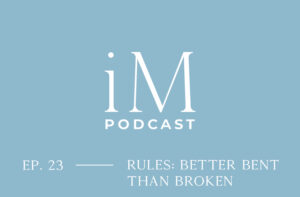All was well with our family’s dating rules until my second son’s senior basketball game. A friend of his with long dark hair and beautiful brown eyes showed up wearing his name and number hand-painted on the back of her fitted shirt.
Our dating rules became the topic of multiple conversations and text threads between my son and me for the next couple of weeks. My son thought the rules were too rigid for his age, and I thought my authority as a single mom was being seriously threatened. So in this case and others since, I asked three questions to determine when to use flexibility with children.
1. What’s in question: a value or a rule?
We don’t want to compromise our values, but a parent’s rules may need tweaking. When my son pushed our rules on dating, I spent a lot of time revisiting why my late husband and I had made them. As my son and I talked, I could see we shared the same values and our differences stemmed from whether the existing dating rules were the best way to implement them. In this case, lifting a rule wasn’t a loss of values.

2. Is this child questioning all authority or just this one rule?
It’s important to determine if your teen is showing a pattern of bucking authority. If so, the battle may be more about authority in general than any one particular rule. Though my son disagreed with me, he always did so respectfully. He did his chores without being reminded, had excellent grades, was a leader at church and in sports, and wasn’t questioning any other rule. My worry that I was losing control wasn’t valid. I could exercise some flexibility with children without fear.
3. How will this affect our relationship—and is that worth it?
We don’t want to win a battle that isn’t critical at the expense of our relationship. My relationship with my son was solid, but relentlessly holding to the rule might have chipped away his trust. It might have sent a message to the girl that we didn’t like her or want her dating our son. In the end, I told him I still believed in the rule but would not give any consequences if he had prayed through it and felt differently.
That girl is the only one he ever dated. After they both graduated from college four years later, they got married. And she is a cherished, bright blessing for our family.
Which of these three questions do you need to consider with your child right now?










